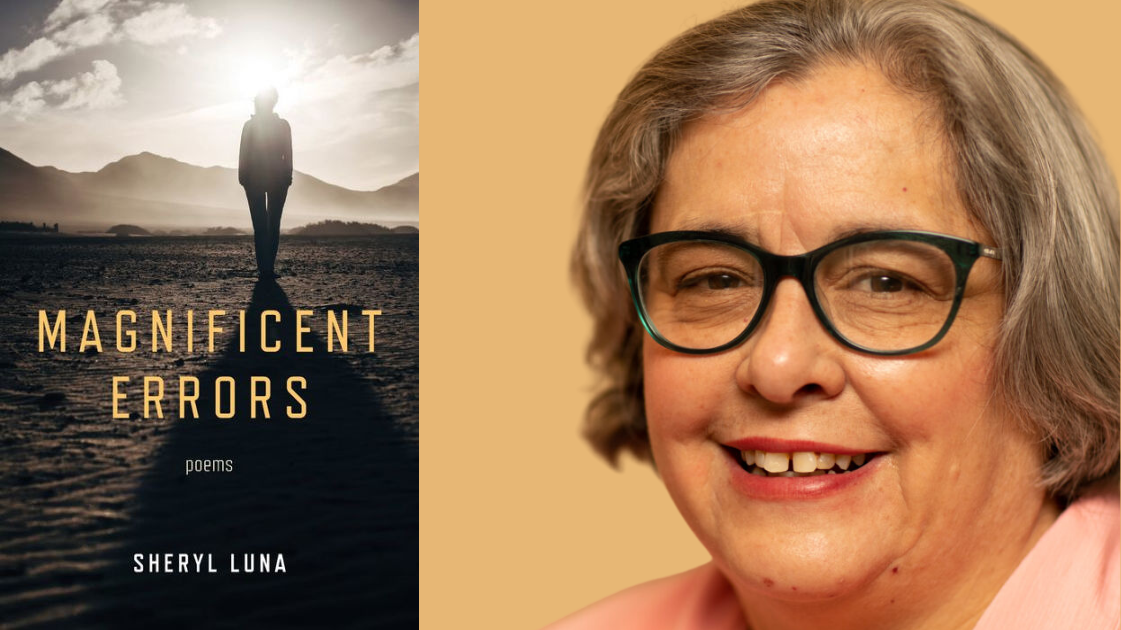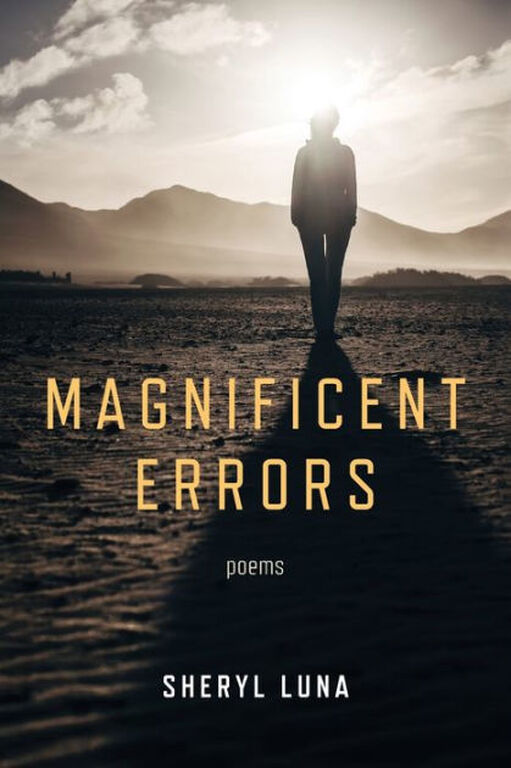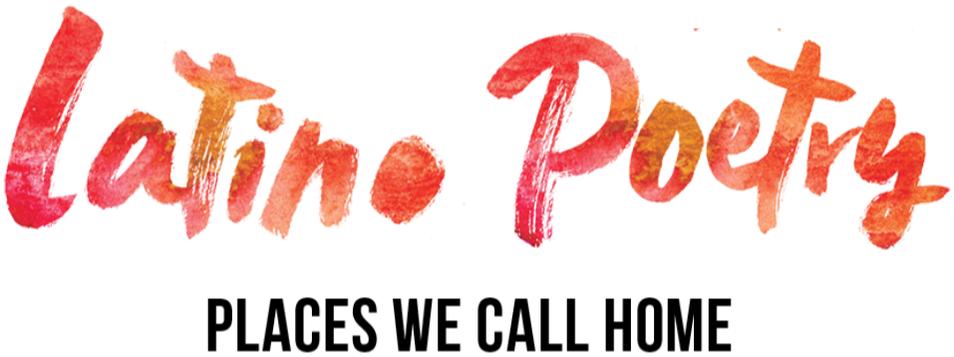Magnificent Errors
Sheryl Luna
|
When you purchase a book through our site, we earn an affiliate commission and so do independent book stores.
|
Wheat Ridge resident Sheryl Luna's third book of poetry shines a spotlight on people living so far in the margins that they are invisible. She uses the soft focus lens of her poetry to illuminate and transform ugly issues like sexual abuse into something beautiful and healing in her latest collection "Magnificent Errors," published by Notre Dame Press, February 2022. Like her acclaimed first book "Pity the Drowned Horses" and second book "Seven," Luna's newest work reminds readers, no matter a person's socio-economic or mental status, all of humanity is linked. Every poem in this collection is a standout. Each piece succinctly captures the discontent of the country's working poor. The collection stems from Luna's experiences in transitional housing and temporary homelessness. She understands the mental health struggles that lead to economic insecurity and homelessness, which give authority and authenticity to the work. She speaks to the COVID-induced, polarized-frenzied feelings of rage, worry, healing and hope for not just the working-poor but for all Americans. The collection begins with her strongest poem "Lowering Your Standards for Food Stamps." In this homage to the working class, she writes, "...I touch everyone's/dirty dollars. Maslow's got everything on me./Fourteen hours on my feet. No breaks./...I am hourly protestations and false smiles." In the poem, "A Homeless Poet Friend Rages at the World's Lesser People," Luna uses the words of a homeless man to show readers how today's hostile political climate permeates all segments of society. In the work, a poet named Aparicio, who hasn't written a poem in years and hates his own kind, takes umbrage at the world. "His thoughts always afire, raging at delusional liberals./Eyes crazed with disgust, he's found a world to blame./There is a wedding of language and hate in his breath." |
Lines like, "and we are not masters of our world. We half understand/the divine within us, sunlight streaming on our skin" in the poem "We Believe in Kindness Because It's Hard to Die" give insights into the universal questions that occupy Luna's thoughts.
She ends the poem with a muffled-pillow, gut-punch, "In the end, we cannot swallow./Our feet turn purplish gray, throats/burn, swallowing impossible. Age and death twist about us,/garter snakes mating before a storm. The end slithers, presses up/our bodies, a cold-blooded lover."
Luna's penchant for the universal may be why Notre Dame Press editors Orlando Menes and Joyelle McSweeney, awarded this book the Ernest Sandeen Prize in Poetry.
The mentally ill, immigrants, and homeless are center stage in Luna's world view and they shine, like the protagonist and antagonist Camille in the poem "The Party."
Camille, who "carries herself queen-like./Meth head and marijuana led,/...unashamed. Hips sway, arms swing./Butt large, she joggles,/...."
Camille, who snaps at her lover and orders him about and flings a shovel at him.
Camille, whose "Hunger and need split her./She parties,/eyes swollen, toothless mouth spitting./Mother of seven,/jailed repeatedly/for beating other women,/today she's pounding Eloy with a shovel."
Many of the poems in the second section of the book, which is divided into three parts, spring from Luna's memories of abuse. In each of the 12 poems that recount the poet's memory of a childhood rape, Luna focuses on mending what is broken with lines like, "What cracks open/beauty like pain?" in "The Language of Drowning" or "What ends in violence can be a beginning" in "Voice."
Springing from the poet W.S. Merwin's works about man's disastrous separation from nature, Luna's "Clouds and Sapling" speaks to the regenerative design of nature. She writes, "Finding the trauma, turning its sharp key, opens the way for splendor. We break open, briefly/lit clouds over a darkening storm," she writes. "...begin again, sapling and dandelion/bursting through what seems an unbreakable black."
Perhaps Dagoberto Gilb, another El Pasoan and the most acclaimed writer in the Chicano literary canon, said it best on the back of the book jacket when he wrote, "...Luna has broken the regional boundaries of the American Southwest and become one of America's finest poets."
Sheryl Luna’s first collection, Pity the Drowned Horses, won the inaugural Andrés Montoya Poetry Prize for emerging Latino/a poets (University of Notre Dame Press, 2005). Her second book of poetry, Seven, was a finalist for the Colorado Book Award. Now in her new collection, Magnificent Errors, she adds to her list of accolades, earning the Ernest Sandeen Prize in Poetry. Notre Dame Press recently spoke to her about her most recent work.
Magnificent Error is a publication by University of Notre Dame Press.
She ends the poem with a muffled-pillow, gut-punch, "In the end, we cannot swallow./Our feet turn purplish gray, throats/burn, swallowing impossible. Age and death twist about us,/garter snakes mating before a storm. The end slithers, presses up/our bodies, a cold-blooded lover."
Luna's penchant for the universal may be why Notre Dame Press editors Orlando Menes and Joyelle McSweeney, awarded this book the Ernest Sandeen Prize in Poetry.
The mentally ill, immigrants, and homeless are center stage in Luna's world view and they shine, like the protagonist and antagonist Camille in the poem "The Party."
Camille, who "carries herself queen-like./Meth head and marijuana led,/...unashamed. Hips sway, arms swing./Butt large, she joggles,/...."
Camille, who snaps at her lover and orders him about and flings a shovel at him.
Camille, whose "Hunger and need split her./She parties,/eyes swollen, toothless mouth spitting./Mother of seven,/jailed repeatedly/for beating other women,/today she's pounding Eloy with a shovel."
Many of the poems in the second section of the book, which is divided into three parts, spring from Luna's memories of abuse. In each of the 12 poems that recount the poet's memory of a childhood rape, Luna focuses on mending what is broken with lines like, "What cracks open/beauty like pain?" in "The Language of Drowning" or "What ends in violence can be a beginning" in "Voice."
Springing from the poet W.S. Merwin's works about man's disastrous separation from nature, Luna's "Clouds and Sapling" speaks to the regenerative design of nature. She writes, "Finding the trauma, turning its sharp key, opens the way for splendor. We break open, briefly/lit clouds over a darkening storm," she writes. "...begin again, sapling and dandelion/bursting through what seems an unbreakable black."
Perhaps Dagoberto Gilb, another El Pasoan and the most acclaimed writer in the Chicano literary canon, said it best on the back of the book jacket when he wrote, "...Luna has broken the regional boundaries of the American Southwest and become one of America's finest poets."
Sheryl Luna’s first collection, Pity the Drowned Horses, won the inaugural Andrés Montoya Poetry Prize for emerging Latino/a poets (University of Notre Dame Press, 2005). Her second book of poetry, Seven, was a finalist for the Colorado Book Award. Now in her new collection, Magnificent Errors, she adds to her list of accolades, earning the Ernest Sandeen Prize in Poetry. Notre Dame Press recently spoke to her about her most recent work.
Magnificent Error is a publication by University of Notre Dame Press.
Comment Box is loading comments...
|
|









